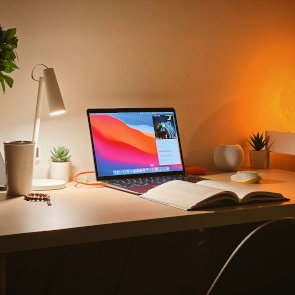How to Make Your Late-Night Study Sessions Productive If You Are a Night Owl
 There’s a unique charm to the quiet hours of the night when the world slows down and distractions fade away. For many night owls, these hours are a time of heightened focus and productivity. Late-night study sessions have become a staple for those who find their creative and intellectual engines revving up as the sun goes down.
There’s a unique charm to the quiet hours of the night when the world slows down and distractions fade away. For many night owls, these hours are a time of heightened focus and productivity. Late-night study sessions have become a staple for those who find their creative and intellectual engines revving up as the sun goes down.Regardless, it’s critical to approach these sessions with a plan. If a late-night study session isn’t a preference but a forced necessity, consider asking essay writers from essayservice.com. Writing services work around the clock to help you with emergencies like last-minute papers. Yet, if you want to study at night and it’s your natural inclination, this guide is for you. We’ll give you tips on how to optimize your night study hours and reach maximum productivity.
Creating a Dedicated Study Space
One of the first steps to a successful late-night study session is establishing a designated study area. This space should be comfortable yet conducive to focus. Ideally, it should be a quiet corner of your room or apartment. The goal is to link this area with your study activities, enabling your brain to quickly transition into a ’study mode’ the moment you take a seat.
Keep it organized and tidy. A cluttered desk can lead to a cluttered mind, which is the last thing you need when studying at night. Invest in some good lighting, too; poor lighting can strain your eyes and make you tired, which is counterproductive when you’re already fighting off the natural inclination to sleep at night.
Time Management Strategies
Before you start studying, take a few minutes to plan what you have to complete:
- Set specific goals for each session (e.g., finish a chapter, write a summary).
- Divide bigger assignments into several smaller sections to make them easier to manage.
- Use a timer to work in focused bursts (like the Pomodoro technique: 25 minutes of study followed by a 5-minute break).
- Have a notebook close at hand to record any distracting ideas or tasks for future attention.
- Prioritize tasks based on their due dates and importance.
- Steer clear of multitasking, as it may affect your focus.
- Reward yourself after completing significant tasks or goals.
After your study session, take a few minutes to check what you’ve achieved. This reflection provides a sense of achievement and helps identify areas that need more attention.
Optimal Nutrition for Night Studying
What you eat and drink during your study sessions can significantly affect your concentration and energy levels. It’s tempting to rely on caffeine and sugary snacks, but these can lead to a crash, leaving you more tired than before. Instead, focus on brain foods that release energy slowly.
Hydration is essential; keep a water bottle at your desk to avoid dehydration, which can cause fatigue and reduced cognitive abilities. For a late-night study session, a light meal with lean protein, whole grains, and vegetables is ideal as it provides steady energy without making you feel too full or sleepy.
The Importance of Breaks
While it might seem counterintuitive, taking regular breaks can actually make your study session more productive. They help you avoid mental fatigue. Plan short breaks into your study schedule – a quick walk, some stretching, or just stepping outside for a few minutes of fresh air can work wonders.
These breaks are not just physical but mental respites. They allow your brain to rest, process information, and come back refreshed. However, be mindful of how you spend these breaks. Avoid activities that might end up extending your break time.
Utilizing Technology Wisely
While technology offers invaluable resources and tools, it can also be a distraction.
- Use apps and tools designed to boost productivity (e.g., note-taking apps, online flashcards, project management tools).
- Take advantage of educational platforms offering lectures, tutorials, and resources.
- Utilize website blockers to keep distracting websites at bay during study hours.
- Consider playing instrumental tunes or white noise if it aids in keeping your concentration.
- Allocate particular times for checking emails and social media to prevent continuous disruptions.
However, remember to step away from screens during your breaks. Too much screen time can strain your eyes and affect your sleep quality.
Sleep and Rest
Balancing late-night study sessions with adequate rest is crucial. Lack of sleep can result in cognitive function issues, including memory and concentration problems. Try to keep a consistent sleep schedule. Such a routine helps in regulating your body’s internal clock, leading to better sleep quality.
It’s vital to listen to your body. If you’re feeling excessively tired and late-night study sessions get too overwhelming, just delegate your essays to the best paper writing service. Getting adequate rest is as necessary as working hard. Also, avoid heavy study material right before bed; give your brain some time to unwind with lighter activities like reading a novel or meditating.
Final Thoughts
Mastering the art of productive late-night study sessions is a combination of environment, time management, nutrition, and technology use. Remember, it’s about quality, not just quantity. Tailoring these sessions to your personal rhythms can lead to more productive study times and a more balanced and healthy student life. Ultimately, whether you’re burning the midnight oil by choice or necessity, these strategies can help you make the most of those quiet, focused hours. Embrace your night owl nature and turn those late hours into your most productive and rewarding study times.
Breadcrumbs
Tags